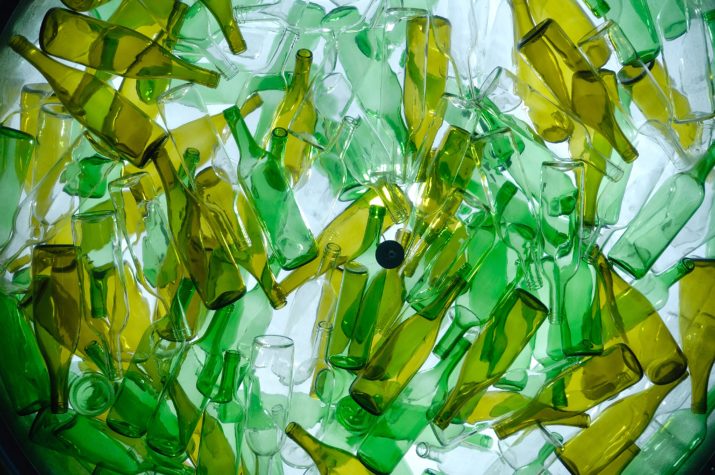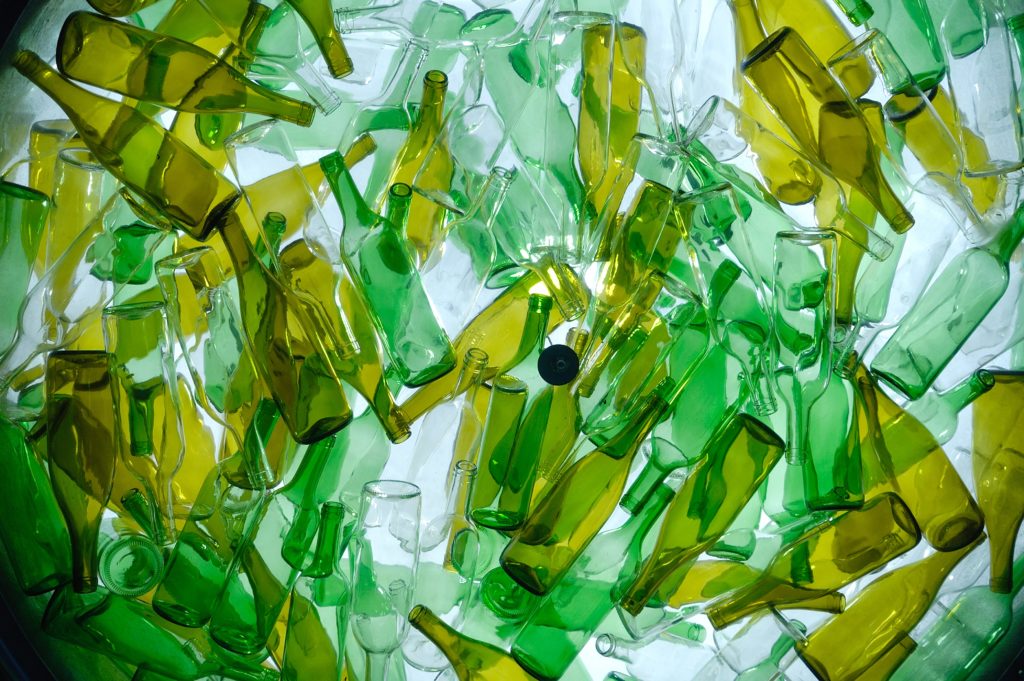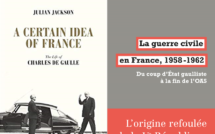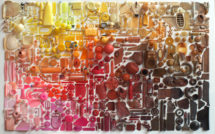

This is part of our special feature, Confronting Waste.
Recent years have seen a resurgence of interest in the fight against waste in many industrialized countries. Discourses and documented analyses on growing masses of waste and their devastating consequences for natural and human milieus have received increased exposure (Lindner and Meissner 2018). Waste prevention and recycling policies have themselves been strengthened in Europe and North America alike, with particular emphasis on the fight against food waste (Mourad 2015). A broad social mobilization is now encouraged (Meyer and Kersten 2016; Cohen, Brown and Vergragt 2017), and the concept of waste is gradually being applied to all consumer products (Ekström 2015).
In that spirit, various citizens’ and/or activist initiatives have sprung up in many places. These include dumpster diving (retrieving food from the dumpsters of stores and restaurants), freeganism (a lifestyle based on the limited consumption of all things free and vegan), disco soups (parties where soups made of vegetables that would otherwise have been wasted are cooked and enjoyed), repair cafes (which offer to repair household devices for free to prevent them from being discarded) and the “zero waste” movement. The rise of these so far understudied initiatives (Anstett and Ortar 2015; Benelli and al. 2017) raises a variety of questions about the sociology of the actors who commit to them, the publics they target, and the ways in which they raise awareness of waste—in a context where lifestyles are more and more individuated, social groups are known to be unequally likely to mobilize around environmental issues, and ecology is discussed in technical terms that may not always be accessible to laypeople. The laboratory SAGE (CNRS-University of Strasbourg) has conducted a sociological research (Hajek and Diestchy 2019) entitled “Emergent networks in the fight against waste” (RELGA, 2016-2019), within the framework of the French Agency for the Environment and Energy Management’s national program on the “Mobilization of the waste concept” (ADEME). Based on in-depth interviews and observations of selected events, it draws on the French case to yield insights on a largely transnational movement that promotes both an “ecology of personal solutions” and a new economic offer to fight waste. It has also evidenced the role of “brokers” of new anti-waste norms and values played by activists in that movement.
A Mixed Transnational Movement and an “Ecology of Personal Solutions” Promoted on Social Networks
Although this research is embedded in a national framework, most initiatives on waste are not limited to a specific geographical area or even an identified type of organization. They circulate between national and/or regional and/or local spaces, and influence each other. They are also far from univocal, as they combine/hybridize plural rationales—environmental, sharing-oriented, anti-poverty, artistically creative, aimed at appropriating power/achieving emancipation, etc. —with the fight against waste. To name just a few examples, the concept of “Repair Café” launched in October 2009 in Amsterdam by Dutch activist Martine Postma, has spread far beyond domestic borders, in a way that has been very decentralized and transcontinental in recent years. It brings together the goal of extending the lifespan of household devices and an effort to foster autonomy by sharing know-hows and creating local social connections. Likewise, the Zero Waste movement emerged out of experiments conducted in a few pioneering cities across the world such as Canberra, Australia (1996), San Francisco, US (2002), and Capannori, Italy (2007), and of the actions of activists and/or citizens’ groups fighting landfills and waste incineration. Spurred on by the GAIA (Global Alliance for Incineration Alternatives) international network, these initiatives are now grouped under the helm of the Zero Waste International Alliance (ZWIA), which is active in nearly a hundred countries. They connect the fight against waste with an effort to give power back to social actors and deconstruct the devaluation of everyday practices by advertisers and the market. Similarly, the Disco Soup movement, which emerged in 2012 in France, has a transnational background (with roots in the Schnippeldisko party held in Germany by the Slow Food organization, and the Feedback and Feeding the 5000 movements launched by UK activist Tristram Stuart), and is also imbued with the social entrepreneurship values of the MakeSense community, in which the founders are active. Another example is the creative salvage organization L’Art et la Matière (in Mulhouse, France), which was inspired by three pioneering structures salvaging materials in businesses to resell them to creative professionals and private citizens: La Réserve des Arts in Paris, France, the recyclerie (recycling center) based in Nantes, France, and the Offcut project in Basel, Switzerland. Here too, salvaging is associated with environmental, artistic and educational goals.
In addition to these mixed and transnational dimensions, what I call an “ecology of personal solutions” is often promoted. Focusing on individual action, this way of conceiving and practicing ecology (in a very broad sense) is showcased on multiple blogs, websites, YouTube channels and Facebook pages filled with advice, recipes, practical examples. This social network culture has birthed genuine icons (like Béa Johnson, the face of the Zero Waste movement), who partly owe their success to the fact that they advertise a “personal” engagement at individual level, with which anyone can identify. This goes hand in hand with a conception of engagement that emphasizes immediate and pragmatic action over ideology. In effect, although their inspirations are largely transnational, these initiatives draw on a strong demand for engagement and action at local level, both on the part of individual citizens looking to make a “concrete” difference and from local authorities and economic actors, which do not hesitate to enlist them in their actions. They value a positive activism – both because it focuses on action rather than denunciation, and because it draws on conviviality, optimism, to reach as many people as possible and move away from a guilt-inducing and/or radical representation of waste. As such, these initiatives are removed from the registers of fear and risk characterizing the “whistleblower” activists involved in controversial cases. More broadly, they praise the concrete virtues of action, in contrast to watchwords or slogans that are perceived as too general, too ideology-laden or too alarming.
Between Raising Awareness of Waste and Producing a New Economic Offer
While at this juncture, this set of initiatives is still a mixed bag, new forms of action against waste are being proposed—sometimes at odds with the technical, management-oriented solutions that have dominated in waste policies, such as the recourse to landfills and incineration plants. They first reflect the rise of an educational/awareness-raising discourse on the fight against waste. Many of the actions carried out by these activists have educational purposes on waste reduction. This is not new in itself, but they use a revisited, active pedagogy, designed to place the targeted audience in a position to act (or react) immediately. This involves for instance considering awareness-raising as the activation of the senses, through experiences meant to elicit an emotion, a feeling. Thus, when organizers of Disco Soups seek to raise awareness of food waste, instead of attempting to convince their audience through discourse and prescriptions on what to do and what not to do in everyday life, they appeal to their taste by having them sample a soup cooked with vegetables that were going be left to waste. Thus, they seek to first create surprise through gustative pleasure; only once evidence through experience has been given do they move on to discursive arguments. This is also how the DIY workshops that have popped up in many places operate—zero waste workshops, repair cafés, creative sewing workshops using salvaged materials, cooking with leftovers workshops, natural cosmetics and household products workshops, etc. They allow attendees to share and appropriate know-hows, concrete solutions, new practices to implement in their everyday lives. Crucially, they emphasize the impact of individuals on their everyday behaviors as a solution as such. Although many initiatives are aimed at the underprivileged (such as the Tente des glaneurs or “Gleaners’ tent,” a French initiative to collect and redistribute unsold produce on fruit and vegetable markets, which has branched out into many other European countries), the active pedagogy they promote explains their refusal to function as welfare organizations with a passive audience that merely waits for distribution.
The work of these activists extends beyond these original pedagogy efforts. Indeed, many initiatives use forms of action that are clearly aimed at economic actors, and manifest a strong attraction to the economic sphere, considered as a key forum for social innovation. Thus, some activists seek to promote and/or produce a new economic offer that integrates the fight against waste. This is the case of actions to find outlets for products unsold or left to waste in targeted existing economic sectors. Activists sometimes do considerable research on possible opportunities, and in the process become genuine intermediaries between supply and demand. Examples include the creation of an exchange platform by the founder of Alsatian start-up Mummyz, who chose to create a firm rather than a non-profit to sell the food leftovers of private citizens and businesses online at low prices, and the reuse of scrap materials by non-profit organization L’Art et la Matière, which organizes exhibitions based on cuttings from the textile industry for an audience of artists and creative leisure fans. Other actions based on similar impulses simply aim at transforming the practices of economic actors. For instance, activists from local Zero Waste France groups have launched a campaign entitled Mon commerçant m’emballe durablement (“My retailer uses sustainable packaging”), incentivizing small business owners to reduce packaging. It involves pairs of activists visiting stores that they routinely patronize to attempt to convince their owners to adopt different practices (bulk selling, deposit refunds, getting suppliers to reduce their use of packaging…) and let customers bring their own containers. One of the incentives consists in attributing a “zero waste” label sticker to the retailer, making them potentially attractive to customers who are already dedicated to the zero-waste approach. This exemplifies their reliance on economic arguments and on economic forms of action. Activists attempt to enlist economic actors not by emphasizing accountability and/or guilt, but by pointing out possible gains—in a nutshell, the argument is that they have more to gain than to lose by fighting waste. In addition to such actions focused on reforming the existing offer, the activists now themselves readily produce a new economic offer that directly relates to the goal of reducing waste. They create a wide range of initiatives, often first as non-profits and then formalized as economic projects. These include not only the flagship zero waste groceries, but also bulk product delivery companies, reusable cup dispenser rental companies, manufacturers of reusable bags for bulk foods, restoration projects based on salvaged products, and consultancy and training firms on zero waste for businesses, local authorities and/or administrations and non-profit organizations. In the process, these activists not only introduce the fight against waste into the economic sphere, they also introduce new activities, particularly domestic ones, to the new economy. In other words, they also produce a new economic offer by economizing previously self-produced activities, like the aforementioned start-up Mummyz, which finds consumers for the leftovers of meals prepared by private individuals, or the Alsatian organization Bene’Pom, which makes apple juice from fruit left to waste in private gardens.
Brokers of New Norms and Values, and Brokers of Objects
These initiatives provide a genuine forum for social innovation and experiments. They reflect a movement of social appropriation of the fight against waste, characterized by an effort to take the question of waste beyond the realm of public policy and to foster new practices, or even new lifestyles, and propose a new economic offer. Actors involved in these initiatives operate as “brokers” in the fight against waste: brokers of new norms and values, and brokers of objects. In our RELGA study, we looked into the background of these actors, remaining mindful not to reduce their engagement to a crude form of social determinism (owing to social properties such as level of education, social origin, etc.). Some sociological features stand out in terms of situation and trajectory. Where the analysis of environmental activism is concerned, they allow us to go beyond the observation that these are predominantly middle-class actors, and to emphasize the opportunities created by these activists in promoting and implementing the fight against waste. Regardless of the initiatives and/or groups investigated, profiles of “travelers” and individuals “in transition” recurred (sometimes both), often coinciding with career transitions. Many of them have traveled extensively in the social and/or cultural and/or professional worlds, by accumulating training experiences, changing majors during their studies, switching careers, or by moving often geographically (for reasons pertaining to studies, work or family), or sometimes due to past experience of (community and/or political) activism. Others are either in or fresh out of a transitory situation—having completed their studies and joined the workforce (in which case, activism is often designed and experienced as a means to explore a still uncertain professional future); embarked on a new phase in their personal life (moving in with a partner, became a parent, etc.); or being unemployed, or pursuing a career change—or several of these at once. In these sometimes cumulative backgrounds, mobility and circulation stand out, making these activists more distant from the norms and values of reference groups, and turning them into spokespersons for new values and new behavioral norms designed to rethink inherited or experienced wasteful practices and lifestyles.
The analysis of how they came to the fight against waste confirms their role as brokers from a different angle. It shows, indeed, that experienced green activists are not the only ones to commit to the fight against waste. Some do have more or less diverse experiences of activism behind them and relate this fight to a more concrete form of activism. But many of these actors came to the fight against waste through investments in the private sphere that led to engagement in collective initiatives. This is especially the case of women, who turn domestic work into activist work and become “moral entrepreneurs” (Becker 1963). These forms of access to activism appear to be most frequent in local Zero Waste groups, where many young women have developed extremely elaborate waste reduction practices in their everyday lives without an extensive political and/or activist background in waste management and processing (and in some cases without any knowledge on the subject whatsoever) long before they even attended or took part in any collective action or initiative. For some of them, this serves as a springboard for a new career that better fits their values, and a way to address criticisms as to the excess domestic work or additional chores allegedly caused by waste reduction practices for women, against the backdrop of the unequal gendered division of domestic labor.
Ultimately, these often self-employed activists disseminate ideas on fighting waste in diverse economic and social segments and build continuities between the private/public, personal/professional spheres of social life. They are also brokers of objects. They repurpose and give new life to objects in various activity sectors, for instance by connecting the fight against waste with different rationales, exploring potential re-uses (and potentially interested actors), combining know-hows from various areas (to avoid waste production or to find outlets for waste), or creating materials or tools such as exchange platforms, events, exemplifications, etc. Faced with the profusion of scraps, leftovers, whose re-uses take a long time to devise, their actions are necessarily situated at a very micro level, rooted in multiple social relationships and finalities. They reflect an inventive long-term effort to mend the relationships between actors and objects.
Isabelle Hajek is Senior Lecturer in Sociology of the Environment (environmental movements and urban ecology) at the Institute for Urbanism and Regional Development, University of Strasbourg, France. She is attached to the CNRS/University of Strasbourg Laboratory SAGE (Societies, Actors and Government in Europe, UMR 7363).
This article received support from the Maison Interuniversitaire des Sciences de l’Homme d’Alsace (MISHA) and the Excellence Initiative of the University of Strasbourg, France. The author wishes to thank Jean-Yves Bart for translating from the original French.
References
Anstett, Élisabeth and Ortar, Nathalie. 2015. La deuxième vie des objets. Recyclage et récupération dans les sociétés contemporaines. Paris: Éditions Petra.
Becker, Howard S. 1963. Outsiders. Studies in the Sociology of Deviance. New York.
Benelli, Nathalie, Corteel, Delphine, Debary, Octave, Florin, Bénédicte, Le Lay, Stéphane, and Rétif, Sophie. 2017. Que faire des restes? Le réemploi dans les sociétés d’accumulation. Paris: Presses de Sciences Po.
Cohen, Maurie J., Brown, Halina Szejnwald and Vergragt, Philip J. 2017. Social Change and the Coming of Post-consumer Society. London and New York: Routledge.
Ekström, Karin M. 2015. Waste Management and Sustainable Consumption. London and New York: Routledge.
Hajek, Isabelle et Diestchy, Mireille. 2019. RELGA. Étude sur les réseaux émergents de lutte contre le gaspillage. Les « passeurs » de la lutte contre le gaspillage. ADEME. Rapport final.
Lindner, Christoph and Meissner, Miriam. 2018. Global Garbage. London and New York: Routledge.
Meyer, John M. and Kersten, Jens M. 2016. The Greening of Everyday life. Challenging Practices, Imagining Possibilities. Oxford: Oxford University Press.
Mourad, Marie. 2015. “Thinking Outside the Bin: Is there a Better Way to Fight Food Waste?”. Berkeley Journal of Sociology 59: 26-33.
Published on May 7, 2019.
Photo: Recycled Glass | Shutterstock




